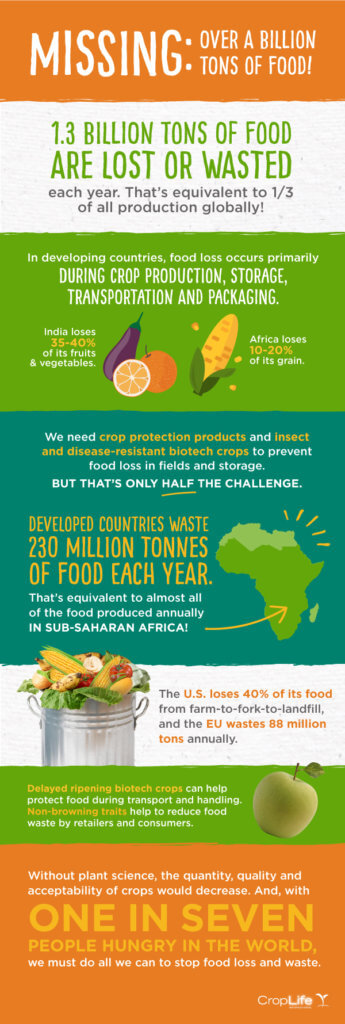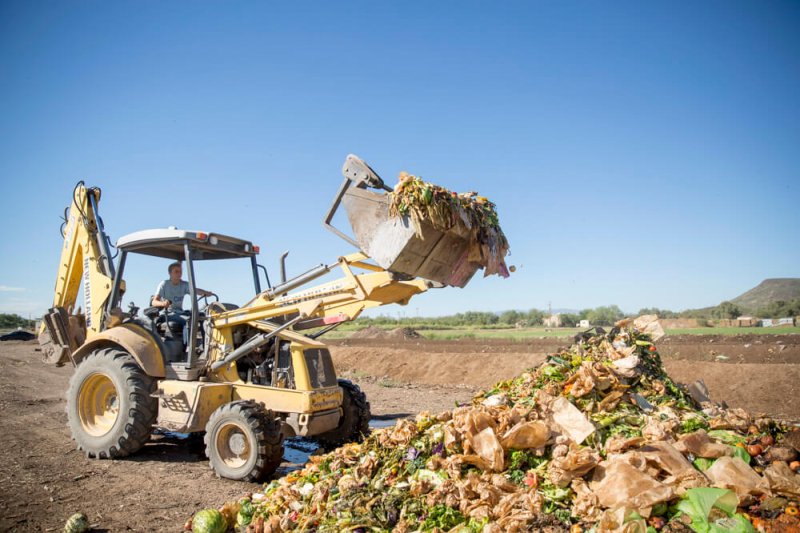Each year the world wastes 1.3 billion tons of food—1/3 of global production. The US throws away approximately 40 percent of the food it produces, while the EU tosses 88 million tons annually, largely because food spoils before consumers eat it. In developing African and Asian countries, food waste is primarily attributed to losses during production, storage and transportation.
Biotech crops are one important solution to this food waste problem. Produce genetically modified to extend its shelf life, such as the non-browning Arctic Apple, discourages consumers from discarding fruits and vegetables they would otherwise eat. In developing countries, disease- and pesticide-resistant crops allow farmers to keep troublesome insects and weeds in check, thus boosting their crop yields, dramatically in some cases. This infographic from CropLife summarizes the world’s severe food waste problem and explains how genetic engineering can help.

Original infographic: INFOGRAPHIC: THE MISSING 1.3 BILLION TONS OF FOOD































